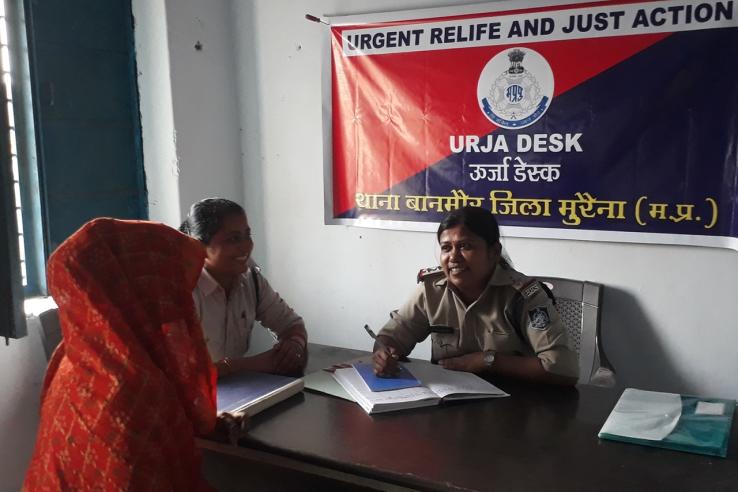How Can Police Serve Women Better: Evidence on Gender-Sensitive Police Reforms in Madhya Pradesh

In this webinar, hosted by the Alliance for Scaling Policy Impact through Research and Evidence (ASPIRE) under J-PAL’s Crime, Violence, and Conflict sector, Dinkar Gupta (Director General, National Investigation Agency of India), Shyamal Misra (Additional Secretary, Ministry of Home Affairs of India), Anuradha Shankar (ADGP, Madhya Pradesh Police), Gurpreet Deo (Special DGP, Community Affairs, Punjab Police), and J-PAL affiliated professor Sandip Sukhtankar (UVA) explored how police in India can serve women better. The speakers were joined by Iqbal Dhaliwal (Global Executive Director, J-PAL) and Sharanya Chandran (Director, Policy and Communications, J-PAL South Asia).
Speakers explored complex policy questions at the intersection of police reforms, gender equity, and criminal justice in India along the following dimensions:
- The central government's focus on improving women's safety in the country; and
- How evidence from randomized evaluations can offer a potential solution by delving deeper into insights from a recent study that tested the impact of gender-sensitive police reforms in Madhya Pradesh on the registration of cases of gender-based violence in the state.
The discussion also explored the effectiveness of widely proposed solutions to improve the reporting and registration of cases of gender-based violence:
- Gender-targeted solutions, provided alongside sensitization training for officers, to shift attitudes and make officers more likely to record these cases.
- Gender-segregated solutions such as setting up women-only police stations.